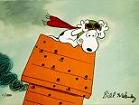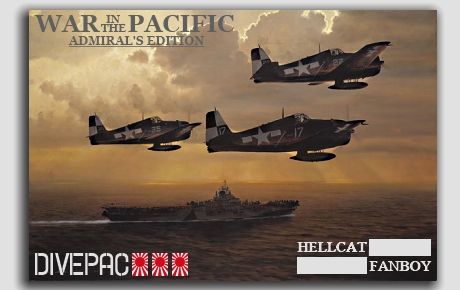Nemo121
Posts: 5821
Joined: 2/6/2004
Status: offline

|
Well, fcharton, with Soviet doctrine a lot depends on the time you are talking about. Western conventional wisdom explains Soviet doctrine as the practice of hurling thousands of men with 1 gun per 5 men and 5 rounds per man at a line of machineguns. This is not really true. It'd be the same as looking at the Chinese operations in Korea in the early 50s and thinking that the human wave assaults were the acme of their military insight. Strategically the Chinese achieved their goals in that war to at least as great an extent as the Allied/UN nations did.
For the Soviets in the 30s and 40s you have two great dividers really.
1. Post-Tukhachevsky and
2. Post-purge
Tukhachevsky ( and Frunze and various other members of the new wave of mobile armoured tactics during the early 30s ) were writing about the creation of a mass, mobile army capable of sophisticated strategic and operational manoeuvres supported by well-trained junior officers capable of battlefield innovation and utilising the initiative.
After the purges ( when Tukhachevsky et al got 9mm solutions to their innovations ) the Soviet Army realised that it simply didn't have the talent remaining to rely on junior officers to do the right thing. Hell, it even realised that it didn't have sufficient staff officers to create staffs for the various Armies and Fronts ( I'll come back to this ). So, the Soviets promoted up the guys who remained - often promoting them 1 or more levels above that at which they were actually competent - and then told created a system in which any initiative by junior level officers was suppressed as they felt the junior level officers had insufficient training to be able to use their initiative appropriately.
They reasoned that if the divisional and regimental officer could rely on "automatons" at the Bn, company and platoon levels to enact their plans properly then, providing those plans were properly planned and reconned then they would succeed. In effect they pushed the "determinant of success" up from platoon, company and Bn-level decision-makers using their initiative in an unpredictable way to the regimental and divisional leaders.
What was required for success to be achieved by a regimental and divisional plan? ( and don't forget that the Soviets viewed divisions as the SMALLEST operational level unit ) What was required was good recon. If you look at a Soviet organisation from the time of the second world war you'll find dedicated recon assets only really began appearing at the regimental and divisional level. Why was that? Well, you needed recon to create plans and Bn and lower level leaders could make do with extempore recon assets ( usually the 3rd sub-unit in each triangular formation ).
With enough good recon the higher level leaders could minimise surprises and their plan could achieve success in spite of a lack of adaptability at lower levels. After all, why would your company commanders need to adapt to changes in the situation caused by the committment of the enemy's mobile reserve IF your divisional recon has spotted that mobile reserve and committed airstrikes, artillery and a Bn-sized pinning attack to pin it in place?
When the US Army OPFOR guys used Soviet tactics and achieved 90%+ identification of BLUFOR positions then they found that Soviet regimental attacks generally did succeed. Why? Simple, there's a clear correlation between IDing enemy positions and reducing the degree of surprises the enemy can pull - thus minimising the impact of your own lower-level inability to react to those surprises.
So, that's a very simple, basic primer on the hows and whys of Soviet doctrine from 1938 to 1942.
From 1943 onward the Soviets managed to implement two significant changes to the above:
1. Frequently this is ommitted but it was hugely important.... The Soviets managed to gather enough staff-trained officers to create a STAVKA level reserve of trained staff officers who were attached to Fronts and Armies which were expected to take part in significant offensive and defensive actions. E.g. At the time of Kursk STAVKA committed its staff reserve to the Armies and Fronts fighting at Kursk and that helped improve their operational performance and logistics hugely. Also at the time of Bagration one of the benefits of the phasing of offensives was that it allowed the Soviets to maximise the impact of their small number of trained staff officers by shuttling them from one offensive Front to another just in time to boost that Front's effectiveness in the offensives.
2. Darwinian selection had created enough Bn and company commanders who were capable that some key formations WERE able to be given more leeway in lower level decision-making. They never had enough but some units were noticeably more "agile" than others.
At the end of WW2 the Soviets had the choice of going back the Tukhachevsky route ( all the pluses of the current Soviet system PLUS lower-echelon adaptability ) or sticking with the current system ( no lower echelon adaptability ) and chose the latter. This was at least in part due to a "good enough is good enough" view but also due to the fact that for the troika system of government in the Soviet Union to remain the Party, KGB/NKVD/State Internal Security Apparatus and the Army had to remain in a state of balance where no single leg of the stool ( Party, Army, Security )was stronger than the other two. Giving the militarily strongest leg of the stool low-level initiative meant making officers think for themselves before they reached a rank sufficiently high that they had more to lose than to gain by revolting. Politically that wasn't a smart thing to do. One could argue that this made the army too weak to destroy the west. This is true. On the other hand it never made the Army so weak that the Soviet Union was invaded. So, it kept the army strong enough that it could achieve its primary goal - the survival of the State - whilst keeping it weak enough that it never became a threat to the survival of the State.
People often forget that under Soviet doctrine this constituted a National Policy Objective ( survival of the state ) and thus was, obviously, more important than more tactical, operational and strategic effectiveness. So, it was the obvious choice to make - --- although maybe not to Western eyes.
There were quite a few more interplays obviously but that's the basic viewpoint.... Your summary though, fcharton, of needing a doctrine which could survive botched execution is a pretty good point summary too though.
_____________________________
John Dillworth: "I had GreyJoy check my spelling and he said it was fine."
Well, that's that settled then.
|
 Printable Version
Printable Version

















 New Messages
New Messages No New Messages
No New Messages Hot Topic w/ New Messages
Hot Topic w/ New Messages Hot Topic w/o New Messages
Hot Topic w/o New Messages Locked w/ New Messages
Locked w/ New Messages Locked w/o New Messages
Locked w/o New Messages Post New Thread
Post New Thread